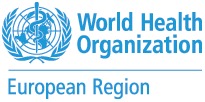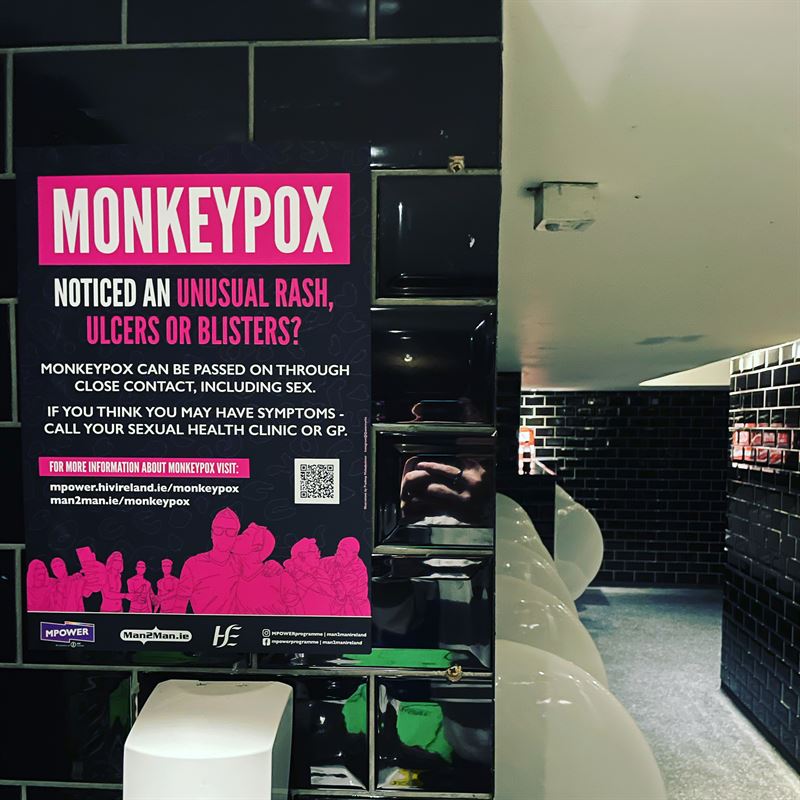
An mpox resurgence in the European region this spring and summer? To prevent that, key measures must continue
New WHO/Europe mpox campaign spells out what everyone – from health authorities to the most impacted communities – can do to control and eventually eliminate mpox for good

Copenhagen, 17 May 2023
One year since its biggest ever mpox outbreak, the WHO European Region – covering 53 countries across Europe and Central Asia – is celebrating success in controlling the spread of the disease as the number of cases continues to decline. In the initial months of the outbreak, the European Region had the vast majority of cases globally. But strategic collaboration between health authorities and the most-impacted populations – including timely risk communications and community engagement, along with a focused mpox vaccination campaign in some of the hardest-hit countries – helped bring numbers down rapidly to practically no cases being reported at all, in a relatively short time.
Now the WHO Regional Office for Europe is calling for vigilance amid concerns that spring and summertime could see mpox cases flaring up once more. Pre-empting this, and coinciding with the International Day Against Homophobia, Biphobia and Transphobia, WHO/Europe is launching a new mpox campaign today to remind people that even though it no longer is defined a public health emergency of international concern, mpox has not gone away; anyone can be infected; and that we have, and must use, the tools to further control and eventually eliminate it.
The new mpox campaign leverages the European Region’s year-long experience in responding to this outbreak, including growing evidence on the disease and measures to control it. The campaign will:
- Highlight what everyone – including and especially the most affected communities, health authorities, health workers, and event organisers – can do to help control mpox and eventually stamp it out.
- Provide a platform for especially vulnerable communities, including underserved populations, to talk about their mpox-related experiences, needs and insights.
- Shine a light on the critical contribution of organizations who represent gay, bi-sexual and other men who have sex with men, trans people, sex workers and migrants. These organisations have played and continue to play a crucial role in fighting mpox. Some of their work and successes are illustrated in a compendium – a collection of case studies – launched as part of the campaign.
The campaign is timely. According to the latest data, at least 17 more people have contracted mpox in 8 countries in the WHO European Region, in the four weeks up to 4 May 2023. While the numbers remain low, as does the risk to the broader population, it’s vital that health authorities keep monitoring and responding to mpox outbreaks. A possible rise in mpox cases over the coming months could be triggered by:
- People gathering for spring and summer events, including Pride-related festivals, given the likelihood of sexual activity occurring.
- A lack of access to testing and vaccines, especially for underserved populations like sex workers, trans people, migrants, and homeless people.
- People infected with mpox arriving from countries outside of Europe and Central Asia.
“Our efforts to control the mpox outbreak appear to have paid off, and that’s great news. I commend health authorities and the most-impacted communities for their strong partnership in controlling mpox, including vaccine roll-out, community outreach and actions to safeguard individual and wider community health, along with concerted efforts not to stigmatize those affected” said Dr Hans Henri P. Kluge, WHO Regional Director for Europe. “Elimination is within our reach, but let’s not forget that mpox is still circulating, as we’ve recently seen in our region. Mpox cases could resurge this spring and summer as festivals and events – where sexual activities might occur – get under way. Some countries in the European Region are still seeing persistent, low levels of transmission. Beyond our region, localised spikes remind us that this outbreak is far from over. Let’s renew our collective efforts to ensure we remain on track towards eventual elimination – it can be done.”
A package of new WHO/Europe publications– including an mpox policy brief, a compendium of case studies and a risk communication toolkit – outlines the recommended actions communities, health authorities and providers, and event organisers can take (see below).
“Mpox should still very much be a concern to health authorities and the most impacted communities alike in the WHO European Region,” said Dr Richard Pebody, High-threat Pathogen Team Lead at WHO/Europe. “Cases might be on the rise again this year. And even if we are lucky, and this doesn’t happen, mpox could pick up again the following year. We simply cannot be complacent. WHO/Europe’s latest mpox policy brief offers a roadmap to countries on how to control and ultimately eliminate the disease in our Region in the long run.”
“I'm concerned that mpox could come back, you know, the sequel, but I'm hopeful we've learned a lot and we have shown that we can come together as a community and really protect ourselves,” said Martin Joseph, a UK-based broadcaster and host of a podcast about mpox. “As someone who went through mpox, it was one of the most testing and life-changing experiences from a mental health point of view, and it really impacted me and I've had to do a lot of work since then to look at my life and look at everything that led to that point.”.
“It is important that the most affected groups – predominantly gay, bisexual and other men who have sex with men – as well as health authorities and health providers remain on high alert,” concluded Dr Kluge. “As we celebrate diversity and inclusion on the International Day Against Homophobia, Biphobia and Transphobia, as well as Pride just around the corner, let’s also remind ourselves that we still have a long way to go to stamp out shame and stigma related to sexual health. It’s critical that we normalise talking about seemingly sensitive or uncomfortable topics in the interest of our health and well-being. Let’s not allow our success in controlling mpox over the past year be overshadowed by another wave of infections this spring and summer. Be informed. Protect yourself and others. And if you can, get vaccinated.”
ENDS
USEFUL LINKS
- Mpox campaign website available here.
- Mpox compendium available here.
- Mpox Q&A available here.
- Mpox background information available here.
- Mpox toolkit available here.
- Photo gallery available here.
KEY RECOMMENDATIONS TO CONTROL AND ELIMINATE MPOX
For health authorities:
- Promote and bring testing and vaccination closer to the most affected communities with transparent information on availability and criteria for eligibility. For example, provide testing and vaccination in a sexual health clinic or on the premises of a community-based organization.
- Reach underserved groups (trans people, sex workers, men who have sex with men including those who are also migrants or refugees, as well amongst younger people, the homeless, and people in rural areas) with health advice, testing and vaccination.
- Develop vaccination plans.
- Build the skills of health workers to be able to identify mpox signs and provide advice and care.
- Declare mpox a nationally notifiable disease to detect mpox early, respond to outbreaks efficiently, and allocate resources where most needed.
- Make mpox response part of national sexual health programmes.
For the most affected communities in particular gay, bisexual, and other men who have sex with men; trans and gender-diverse people; and sex workers:
- Stay in the know about mpox by accessing trusted sources of information and advice.
- Check yourself regularly for symptoms. If in doubt, get tested. If you experience mpox symptoms, take a break from sexual activities until you are well and talk to your partners about symptoms. The most common symptoms are an evolving rash and blister-like lesions which can appear anywhere on the body.
- Find out where to access care.
- If vaccination is available, get vaccinated. Vaccination offers an extra layer of protection and can reduce severity of the disease – alongside other preventive measures.
- Keep protecting yourself and others – even after you’re vaccinated.
For organisers of mass gatherings:
- Make information about mpox available before, during and after an event.
- Extend mpox information and advice to side events (i.e. night clubs, bars, and others) and business premises where sex may take place on the premises (i.e. saunas and sex clubs).
- Share local information on where to get tested, and where to get vaccinated (if vaccines are available).
- Encourage people who develop mpox symptoms or are close contacts to skip the event and be reimbursed for their tickets, ensuring a ticket refund policy is in place.
- Consider offering spaces to community organizations working with key affected populations and support their communications, such as adding information about their services on your website and social media channels.
CONTACTS
Bhanu Bhatnagar: bbhatnagar@who.int
WHO/Europe Press Office: eupress@who.int

This information was brought to you by Cision http://news.cision.com
 IMG 0166 |
 2022-06-03 19 44 23 |
If you would rather not receive future communications from WHO Regional Office for Europe, please go to https://optout.ne.cision.com/en/ZQXTf33DQbxPaFEJhR8oxgmNxAt6UukmoYYwTFYLKeu5BMmPPDazmFwwWCkg5nzaKSAJYEbC66DVP6juUgL549kUAeoYHsJBSDCQuiJKAuy8ZikqiXhqiFkJ8Y3W66XScC8.
WHO Regional Office for Europe, Marmorvej 51, Copenhagen, 2100 Denmark




